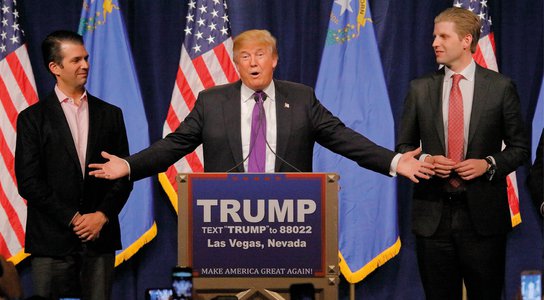Susan Combs, the official leading the “reorganization” of the U.S.’ top oil and gas regulatory agency, received up to $2.1 million from oil companies that support the shakeup, shows new Global Witness investigation
Read the full investigation here.
January 16, 2019, Washington, D.C. – The U.S. Department of Interior (DOI) risks being gutted by Senior Advisor Susan Combs, the architect behind a controversial plan to restructure the agency – a move publicly supported by oil companies that have paid her up to $2.1 million, revealed Global Witness today in a new investigation.
“Combs’ clear conflict of interest requires that she step aside from DOI’s restructuring process,” said Jonathan Gant, Senior Campaigner at Global Witness. “A damaging shake-up headed by an official who has pocketed money from oil companies is deeply alarming.”
Experts who served with DOI under the Bush and Obama administrations have warned that the reorganization will lead to widespread job resignations and hurt the agency’s ability to do its job regulating oil, gas, and mining companies. Similar concerns have also been raised by Chairman of the House Committee on Natural Resources, Congressman Raúl Grijalva of Arizona.
Combs, who owns a large ranch near the Mexico border, has received income from six oil companies holding leases on her land, according to her financial disclosure forms. Between 2016 and 2017 alone Combs made up to $2,167,500 from the drillers.
Companies that have paid Combs include Chesapeake, ConocoPhillips, Marathon, Murphy, Carrizo, and Phillips 66. It is also likely that Combs is still receiving payments from oil companies today. A partial list of the companies’ payments to Combs can be found at the end of this release.
Leading oil industry groups have enthusiastically supported the DOI restructure, including the American Petroleum Institute, the American Exploration & Production Council, and the Independent Petroleum Association of America. These groups are headed by executives from companies that have paid Combs – Chesapeake, ConocoPhillips, Marathon, and Phillips 66.
“The impact of the DOI shake-up cannot be overstated,” said Gant. “The agency manages 245 million acres of public land and oversees tens of thousands of oil licenses. Any efforts to undermine or dismantle the Department would be a gift to the oil industry.”
The agency shake-up is a continuation of a process started by former-DOI Secretary Ryan Zinke. When in office, Zinke outlined plans to eliminate thousands of positions and accused his employees of being “not loyal to the flag.” In early 2019, he was reportedly forced to resign following multiple ethics investigations, including a possible probe into a land deal between a foundation he started and David Lesar, who chairs oil infrastructure company Haliburton.
Trump has nominated Combs to serve as DOI Assistant Secretary, but she is yet to be confirmed by the Senate. Instead, Combs currently serves as a DOI “Senior Advisor, Exercising the Authority of the Assistant Secretary.”
It is not illegal for federal staff like Combs to lease private land to oil companies and Global Witness does not have evidence that either she or the companies have broken any U.S. laws. In 2017, the U.S. Office of Government ethics cleared Combs to serve as Assistant Secretary, stating that she was “in compliance with applicable laws and regulations.”
Global Witness has requested comment from Combs, the oil companies that have paid her, and the industry groups supporting the DOI shakeup. As of the date of publication, none have responded.
“Like Ryan Zinke, Combs represents yet another Trump appointee who is deeply entangled with fossil fuel companies and accused of having a conflict of interest,” said Gant. “Congress must strengthen conflicts of interest laws and these laws must be enforced by an empowered Office of Government Ethics as recently proposed in the For the People Act of 2019. Further reforms should prevent officials with financial ties to companies from making government decisions that directly benefit those companies.”
/ ENDS
Contacts
-
Julie Anne Miranda-Brobeck
Head of US Communications and Global Partnerships
Notes to editor:

You might also like
-
Report A Foreign Affair: Trump’s Dominican Republic Deal
Donald Trump is pursuing what appears to be a new business deal in the Dominican Republic despite pledging no new foreign deals – a deal which may be in violation of the U.S. Constitution.
-
Blog post Four signs the US is creeping towards a kleptocracy under Trump’s watch
If the past year has shown us anything, it’s that there’s been a blurring of the lines between the Trump Organization’s business interests, political decisions made by the administration and Congress, and how tax payer money is spent.
-
Press release Global Witness welcomes Canadian regulator ruling on Glencore-controlled company and executives
The Glencore-controlled mining company Katanga Mining has today agreed to pay USD $22 million to settle allegations by Canadian regulators that it had failed to comply with disclosure requirements, including that it had not properly described risks of doing business with a controversial middleman in Democratic Republic of Congo (DRC).